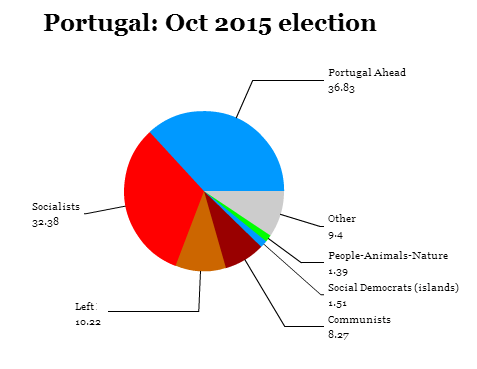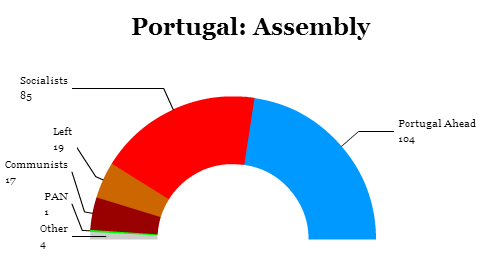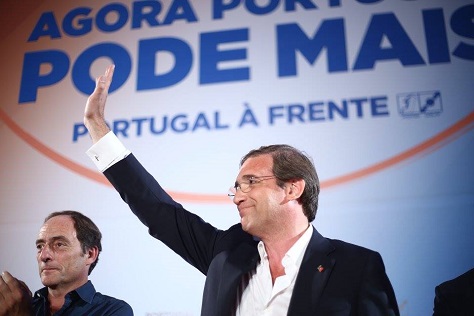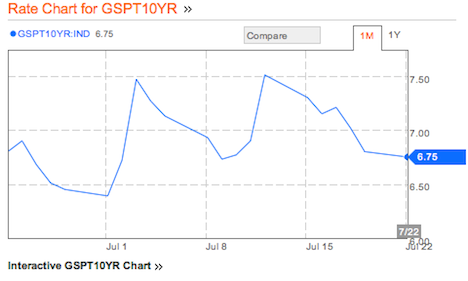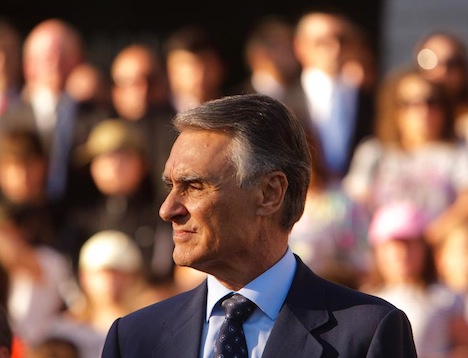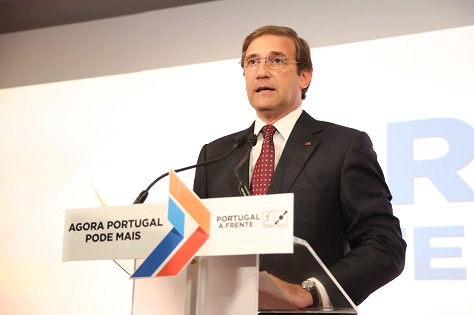
The headline from Sunday’s Portuguese parliamentary election results highlighted the fact that the country’s center-right government won despite the fact that it implemented an unpopular bailout program that entailed difficult spending cuts and tax increases.![]()
That’s true, of course, and the electoral coalition of prime minister Pedro Passos Coelho did emerge with the largest share of the vote. Later this week, it’s expected that he will receive a mandate to form a new government from Portugal’s president Aníbal Cavaco Silva.
*****
RELATED: Portugal holds first post-bailout elections
*****
With neither of Portugal’s mainstream parties able to win a majority of seats in the country’s 230-member, unicameral Assembleia da República (Assembly of the Republic), early elections seem certain to follow in due course. Though it’s likely that Passos Coelho’s center-right coalition, Portugal à Frente (Portugal Ahead) will indeed form a minority government, it will need the support of its chief opponent, the center-left Partido Socialista (PS, Socialist Party) to pass next year’s budget and other key measures. With the country no longer subject to the term of its prior bailout program, and with the economy set to grow for the second consecutive year in 2015, the Socialists will almost certainly demand a high price in exchange for support, including some relief from the austerity measures of the past half-decade.
A disagreement, however, could lead the country to a snap vote, perhaps as soon as next summer. While no new elections can follow for six months, no minority government since the end of the Salazar-era military dictatorship in 1974 has been able to hold onto power for a full four-year term.
In truth, no one won Portugal’s elections, and turnout dropped from 5.59 million (around 58%) in 2011, then a record low since the return of democracy, to just 5.38 million on Sunday (around 57%). The center-right’s ‘victory’ is as Pyrrhic as they come, the center-left’s modest gains belie doubts about past performance, and radical leftists haven’t received the same welcome as in crisis-struck Spain or Greece.
Continue reading Why no one actually won Portugal’s parliamentary elections
